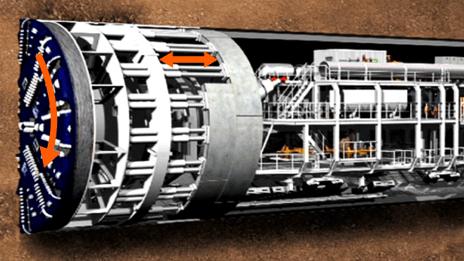Crossrail project: London's 26-mile tunnelling work finished
- Published
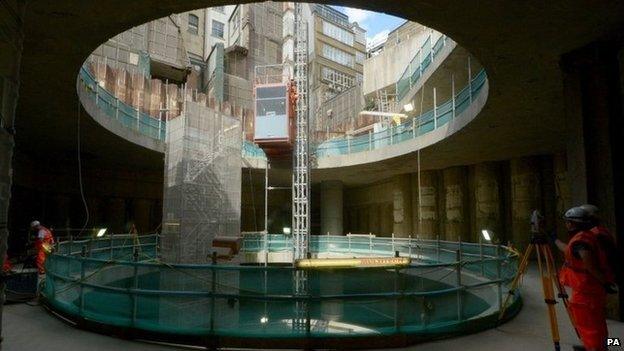
Construction began at Canary Wharf in May 2009 with tunnelling work starting in 2012
Tunnelling work across London for the £14.8bn Crossrail scheme has been finished.
Eight boring machines have been cutting their way through earth to create 26 miles (42km) of tunnels.
Services, which are due to start in 2018, will run as far west as Reading in Berkshire and as far east as Shenfield in Essex.
During a visit to the Crossrail site at Farringdon, David Cameron said the project was "an engineering triumph".
Boring machine Victoria's breakthrough at Farringdon on Wednesday night completed tunnelling through the capital.
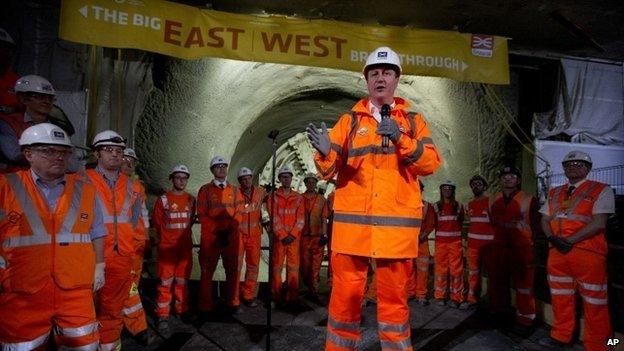
David Cameron told workers the project made him "dead proud to be your prime minister"
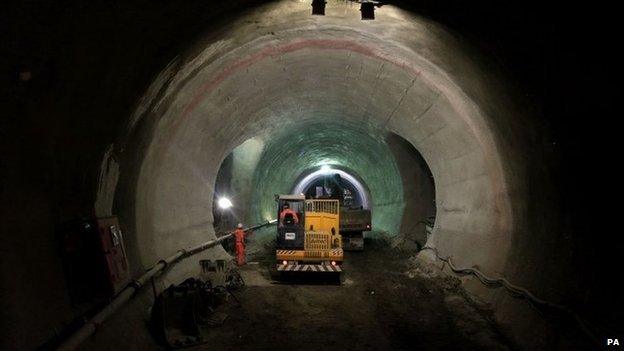
Eight tunnel boring machines have been used to dig the tunnels
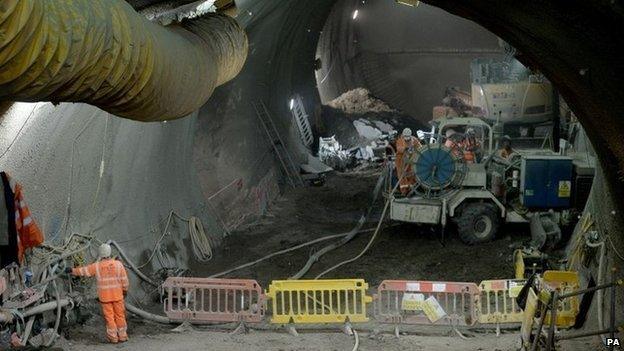
The tunnels weave their way between Underground lines, sewers and utility tunnels
The prime minister, London mayor Boris Johnson and transport secretary Patrick McLoughlin walked through the tunnel at Farringdon to take a closer look at the tunnelling machine.
Mr Johnson said the completion was "an historic day" and marked "a huge success for the whole of the UK economy".
Construction of Crossrail began at Canary Wharf in London Docklands on 15 May 2009, with tunnelling work starting in May 2012.
At the peak of construction machines were aiming to complete 100 metres of tunnelling a week.
The fastest day of tunnelling was on 16 April 2014 when boring machine Ellie completed 236ft (72m) between Pudding Mill Lane and Stepney Green.
Crossrail's tunnels are made up of more than 200,000 concrete tunnel segments, with each weighing 3.4 tonnes.
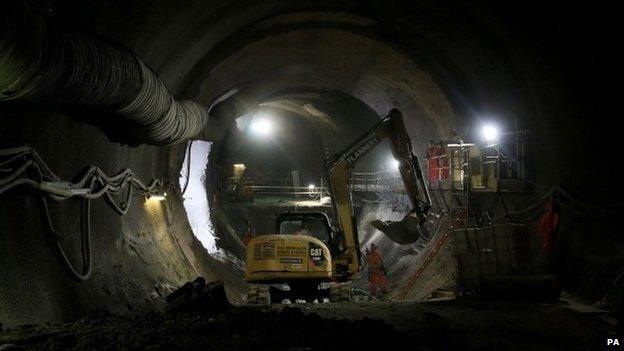
Excavated material from Crossrail's tunnels is being used to create a nature reserve in Essex
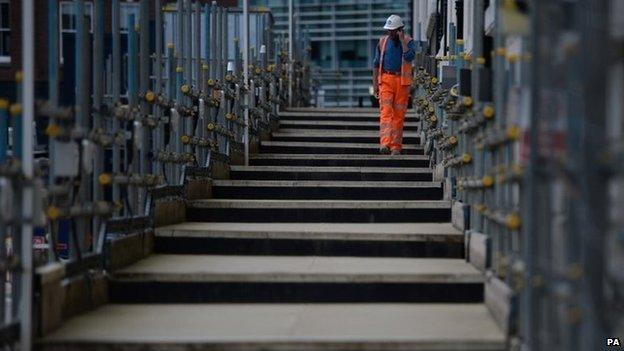
Crossrail is Europe's largest construction project with thousands of workers
Millions of tonnes of excavated material is being shipped to Wallasea Island in Essex to create a nature reserve.
Ten new Crossrail stations are being built in central London, London Docklands and Abbey Wood, south London.
Crossrail is Europe's largest construction project with thousands of workers operating on dozens of sites.
It is estimated the scheme, which will serve 40 stations, will generate at least 75,000 business opportunities.
The Crossrail project is 65% complete and engineers will now continue upgrading existing stations and building new stations in central London and London Docklands.
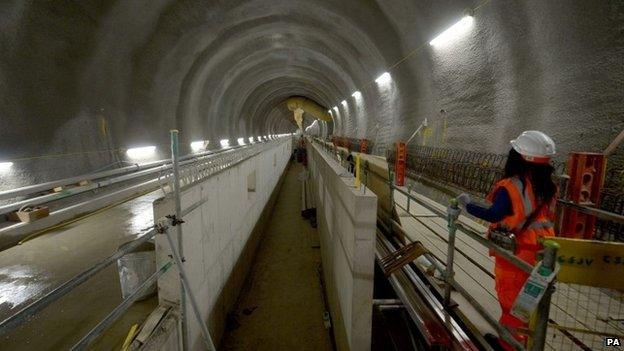
Crossrail's tunnels are made up of more than 200,000 concrete tunnel segments
- Published2 June 2015
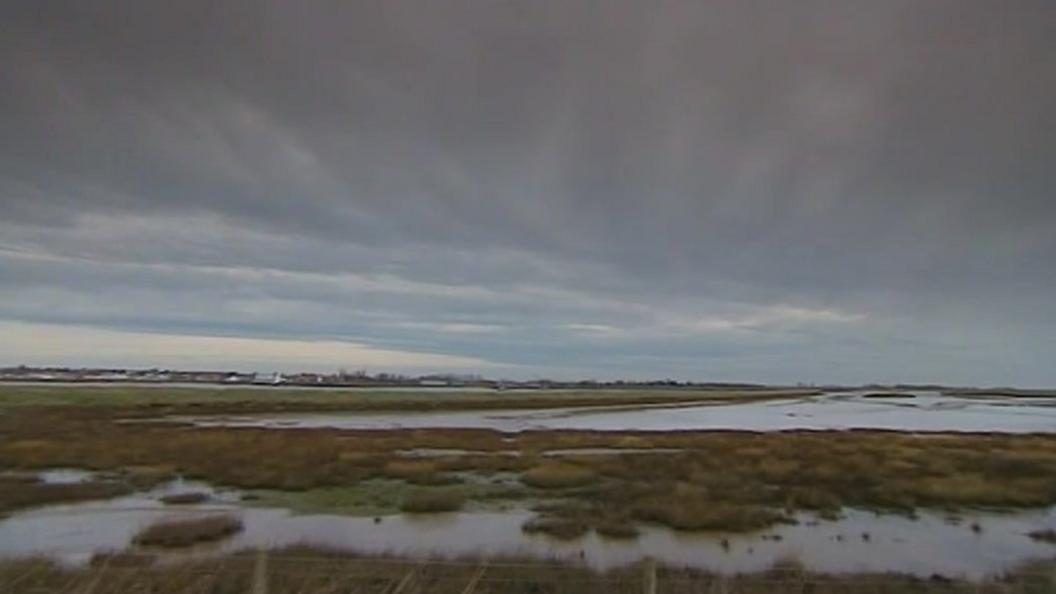
- Published20 December 2014
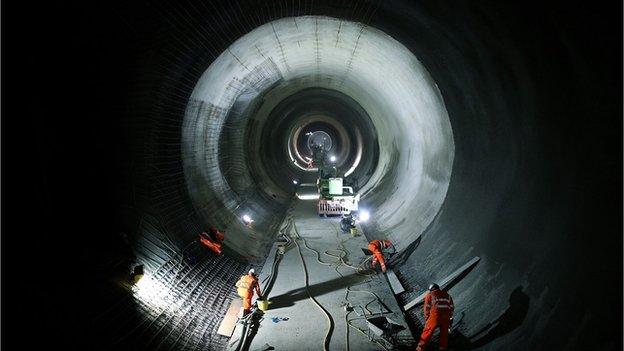
- Published2 November 2014
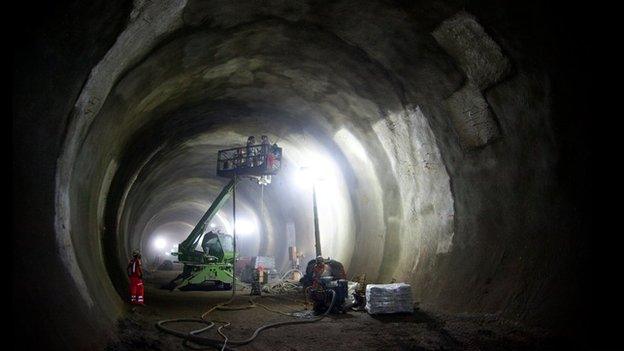
- Published1 August 2013
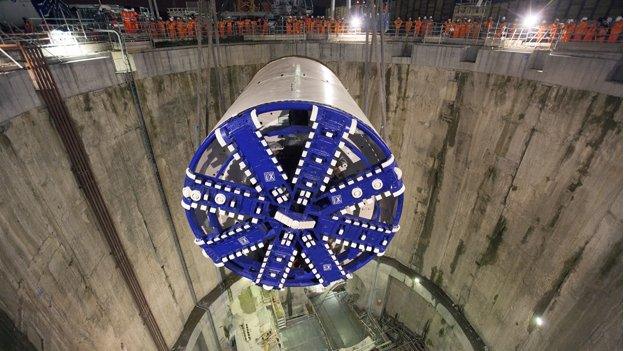
- Published27 November 2014
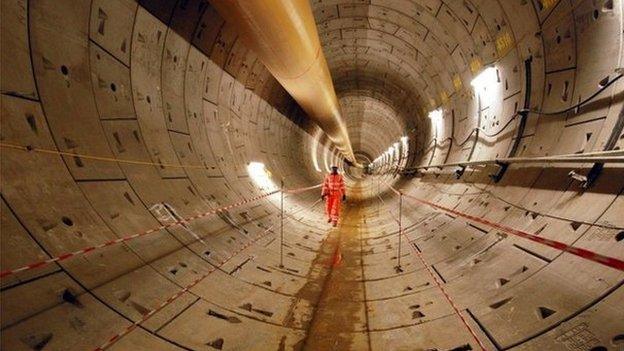
- Published28 October 2014

- Published15 March 2012
